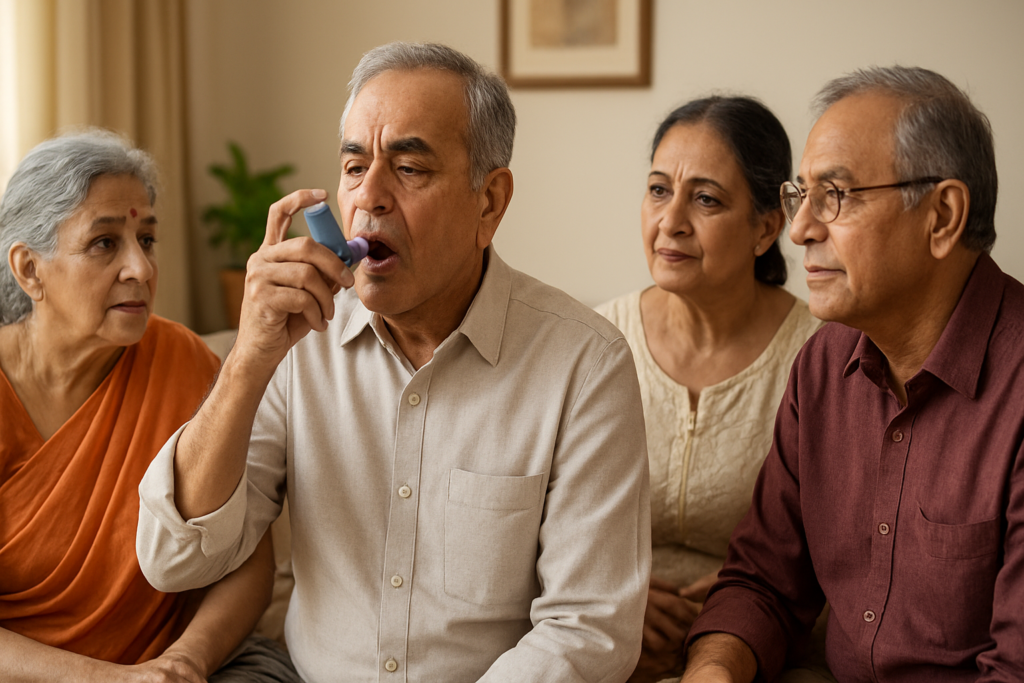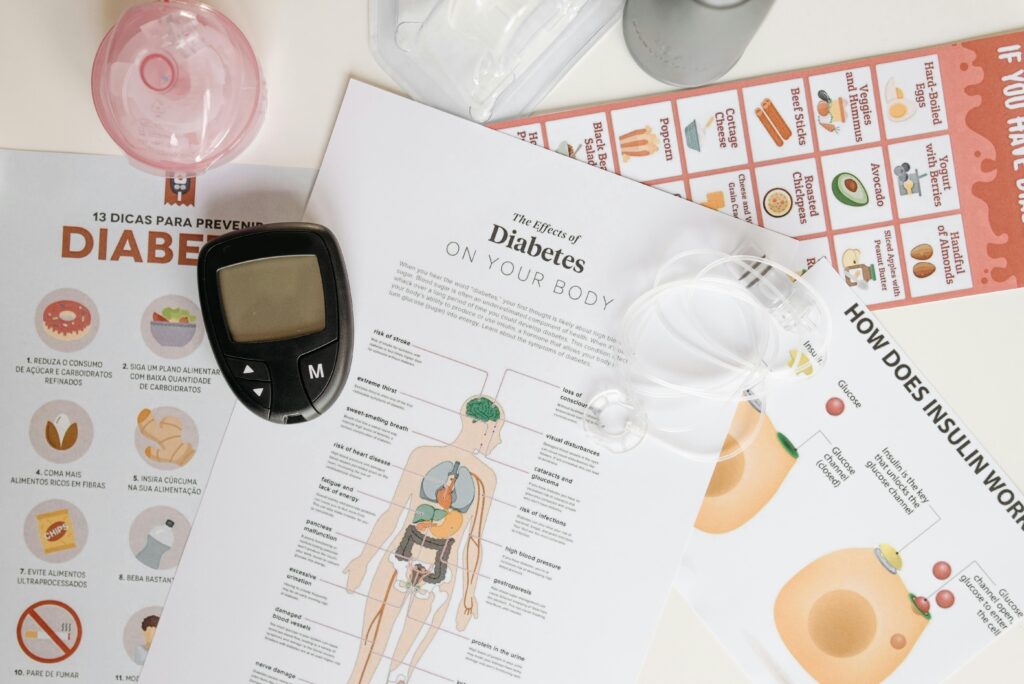Breathing is something we rarely think about—until it becomes difficult. For many elders in India, asthma and other breathing problems are a part of daily life. Pollution, dust, seasonal changes, and even cooking fumes can make matters worse. But with the right care at home, elders can breathe easier and live more comfortably.
In this blog, we will look at the common causes, home care tips, and practical solutions for managing asthma and breathing problems in Indian homes.
Understanding Asthma and Breathing Issues
Asthma is a condition where the airways become inflamed and narrow. This makes it hard to breathe. Triggers can include dust, pollen, smoke, and strong smells. In elders, breathing issues may also be linked to chronic bronchitis, COPD (chronic obstructive pulmonary disease), or long-term exposure to pollution.
Symptoms often include:
- Shortness of breath
- Wheezing or noisy breathing
- Chest tightness
- Persistent cough, especially at night
Recognizing these symptoms early can help prevent severe attacks.
Why Indian Homes Can Be Challenging for Elders
Indian households often have unique triggers:
- Dust from open windows or ceiling fans
- Incense sticks, dhoop, and camphor used in daily rituals
- Kitchen fumes from frying or using a traditional chulha
- Seasonal pollen during spring and monsoon
- Outdoor pollution in cities and towns
Understanding these triggers is the first step in creating a safer home environment.
Practical Home Care Tips
1. Keep the Home Clean but Simple
- Use a damp cloth instead of a dry duster to avoid spreading dust.
- Wash curtains, bed sheets, and pillow covers in hot water regularly.
- Avoid too many rugs, carpets, and stuffed toys—they trap dust.
2. Kitchen Adjustments
- Ensure proper ventilation while cooking.
- Switch to chimneys or exhaust fans if possible.
- Use less oil for frying to reduce smoke.
3. Manage Air Quality
- In polluted cities, use an air purifier in the bedroom.
- Keep windows closed during high-pollution hours (morning and evening).
- Grow indoor plants like areca palm, snake plant, or money plant, which improve air quality.
4. Breathing Exercises
- Practice pranayama (deep breathing, anulom vilom, bhramari).
- Gentle yoga under guidance helps open up the lungs.
- Even 10 minutes a day can make a big difference.
5. Medication and Medical Care
- Always keep inhalers and medicines handy.
- Use a spacer with inhalers for better effect.
- Do not stop medicines suddenly without the doctor’s advice.
- Regular check-ups with a pulmonologist are important.
6. Emotional Well-being
Breathing problems can cause anxiety. Elders may feel nervous during an attack. Family support, reassurance, and calm surroundings help reduce stress. Relaxation techniques like meditation, listening to soothing music, or chanting can also help.
Seasonal Care Tips for India
- Summer – Stay hydrated and avoid stepping out in hot dusty winds.
- Monsoon – Prevent dampness and mold by keeping rooms well-ventilated.
- Winter – Use warm clothes, cover nose and mouth in cold air, and keep the bedroom warm.
When to Seek Medical Help Urgently
If an elder:
- Struggles to speak full sentences,
- Has bluish lips or nails,
- Experiences very rapid breathing,
- Feels faint or confused,
…it’s important to seek emergency care immediately.
Conclusion
Managing asthma and breathing problems at home is possible with a little awareness and consistent care. Clean air, good habits, proper medicines, and emotional support can make a world of difference. Elders deserve to breathe easy and live with dignity.
💬 We’d love to hear from you!
Do you or your loved ones face asthma or breathing issues at home? What tips or remedies have worked for you?
👉 Share your experiences in the comments below and help others learn.
📢 Don’t forget to share this blog with friends and family who may benefit. Together, we can create healthier homes for our elders.





